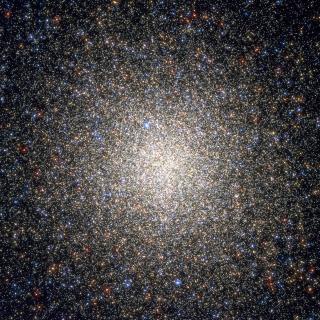Bibcode
Nardiello, D.; Piotto, G.; Milone, A. P.; Marino, A. F.; Bedin, L. R.; Anderson, J.; Aparicio, A.; Bellini, A.; Cassisi, S.; D'Antona, F.; Hidalgo, S.; Ortolani, S.; Pietrinferni, A.; Renzini, A.; Salaris, M.; Marel, R. P. van der; Vesperini, E.
Referencia bibliográfica
Monthly Notices of the Royal Astronomical Society, Volume 451, Issue 1, p.312-322
Fecha de publicación:
7
2015
Número de citas
54
Número de citas referidas
45
Descripción
In this paper, we combine Wide Field Camera3/UVIS F275W, F336W, and
F438W data from the `UV Legacy Survey of Galactic Globular Clusters:
Shedding Light on Their Populations and Formation' (GO 13297) Hubble
Space Telescope Treasury programme with F606W, F625W, F658N, and F814W
Advanced Camera for Surveys archive data for a multiwavelength study of
the globular cluster NGC 6352. In the colour-magnitude and two-colour
diagrams obtained with appropriate combination of the photometry in the
different bands, we separate two distinct stellar populations and trace
them from the main sequence to the subgiant, red giant, horizontal and
asymptotic giant branches. We infer that the two populations differ in
He by ΔY = 0.029 ± 0.006. With a new method, we also
estimate the age difference between the two sequences. Assuming no
difference in [Fe/H] and [α/Fe], and the uncertainties on
ΔY, we found a difference in age between the two populations of 10
± 120 Myr. If we assume [Fe/H] and [α/Fe] differences of
0.02 dex (well within the uncertainties of spectroscopic measurements),
the total uncertainty in the relative age rises to ˜300 Myr.
Proyectos relacionados

Vía Láctea y galaxias cercanas
El objetivo general del Proyecto es el estudio de la estructura, historia evolutiva y proceso de formación de galaxias a través de sus poblaciones estelares resueltas, tanto a partir de fotometría como espectroscopia. El proyecto puede dividirse en cuatro líneas principales: I. Historia de formación estelar en el Grupo Local. El objetivo de esta
Martín
López Corredoira